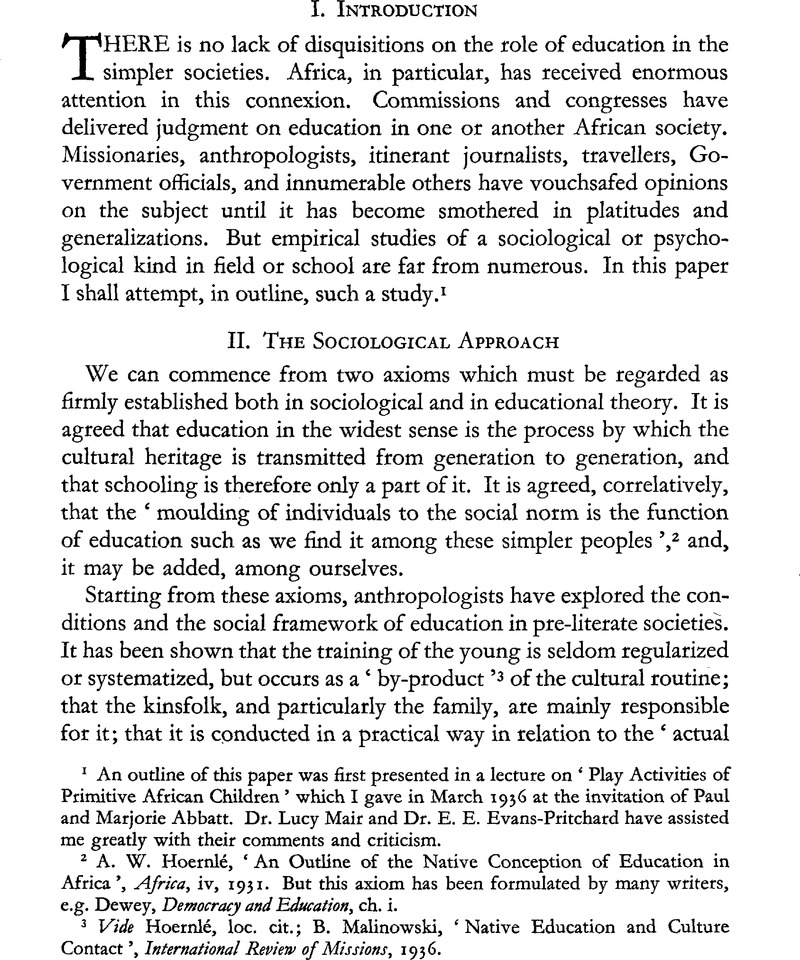No CrossRef data available.
Article contents
II. The Sociological Approach
Published online by Cambridge University Press: 21 August 2012
Abstract

- Type
- Social and Psychological Aspects of Education in Taleland
- Information
- Africa , Volume 11 , Issue S4: Social and Psychological Aspects of Education in Taleland , 1938 , pp. 5 - 8
- Copyright
- Copyright © International African Institute 1938
References
page 5 note 2 Hoernlé, A. W., ‘An Outline of the Native Conception of Education in Africa’, Africa, iv, 1931Google Scholar. But this axiom has been formulated by many writers, e.g. Dewey, Democracy and Education, ch. i.
page 5 note 3 Vide Hoernlé, loc. cit.; Malinowski, B., ‘Native Education and Culture Contact’, International Review of Missions, 1936Google Scholar .
page 6 note 1 Firth, R., We, the Tikopia, pp. 147 ffGoogle Scholar. This is the most valuable empirical and theoretical contribution to the subject of recent years. There have been various attempts to utilize this principle in planning curricula of schooling in Africa. Cf. Mumford, W. B., ‘Malangali Experiments’, Africa, iii, 1930Google Scholar and Helser, A. D., Education of Primitive People, 1934Google Scholar.
page 6 note 2 Cf., inter alia, E. W. Smith, ‘Indigenous Education in Africa’, in Essays presented to C. G. Seligman, for a useful commentary on this and other general points referred to in this paper; and Driberg, J. H., At Home with the Savage, pp. 232 ffGoogle Scholar.
page 6 note 3 I refer to Africa here. Margaret Mead in Coming of Age in Samoa and Growing Up in New Guinea and Firth, op. cit., have done much to clarify it for Oceania. Attention is drawn to the problem in Rev. E. W. Smith's essay, cited above.
page 7 note 1 An excursus into genetic psychology would be out of place in this paper, but the reader will observe how much it owes, inter alia, to F. C. Bartlett, Remembering; K. Koffka, Growth of the Mind; S. Isaacs, Intellectual Growth of Young Children; Social Development of Young Children; C. E. Spearman, Nature of Intelligence; and to the writings of Jean Piaget (Language and Thought of the Young Child, &c). I have borrowed also from the anthropological writings already cited and from those of Malinowski and Radcliffe-Brown, particularly from their writings on kinship.




